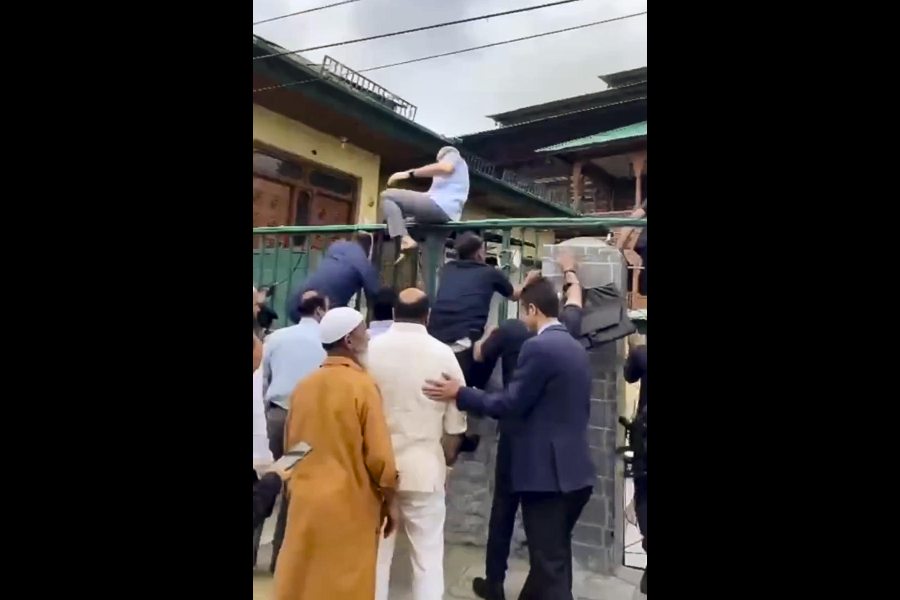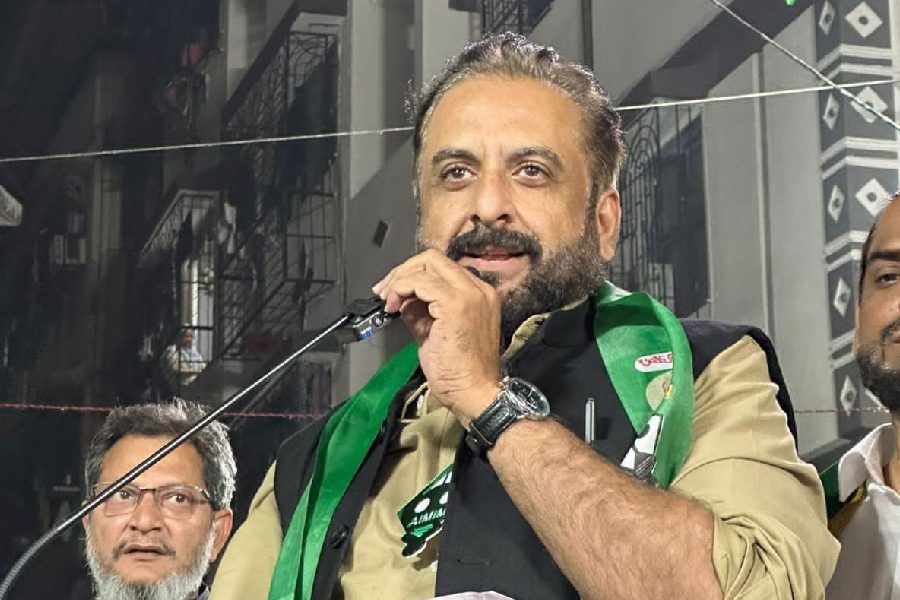Omar Abdullah’s stature as Jammu and Kashmir chief minister offered him no shield against the security establishment led by lieutenant governor Manoj Sinha, which treated him just like another street protester to prevent him from visiting the martyrs’ graveyard in Srinagar.
The LG’s administration on Sunday thwarted attempts by Kashmiri politicians to revive the commemoration of the July 13 Martyrs’ Day by placing them under house arrest and imposing restrictions to prevent a gathering at the Mazar-e-Shohada, the graveyard in the old city.
The elected government led by Omar and his National Conference made a determined bid to commemorate the martyrs a day later, but not before overcoming a determined police bid to stop them.
The police action triggered outrage, with Bengal chief minister Mamata Banerjee calling it shocking and shameful.
“What is wrong in visiting the graveyard of martyrs? This is not only unfortunate, it also snatches the democratic right of a citizen. What happened this morning to an elected Chief Minister @OmarAbdullah is unacceptable,” wrote Mamata, who met Omar earlier this week at state secretariat Nabanna.
Omar, along with others, faced police barricades. Still, they appeared determined to reach the venue on Monday, forcing the chief minister to walk a distance through the congested old city and later scaled the graveyard’s fence after the police had locked
its gate.
While Omar brazened it out under the glare of cameras, his octogenarian father and three-time chief minister, Farooq Abdullah, education minister Sakina Itoo and some others reached the venue surreptitiously. Farooq reportedly hitched a ride in a three-wheeler, and Sakina on a passerby’s two-wheeler.
The face-off marked a new low for the office of the chief minister, with Omar making a determined maiden attempt to salvage his image in the eyes of the public.
Omar had faced criticism from the Opposition on Sunday for allegedly staying in Delhi to avoid a confrontation with the LG. Sources said he had returned the same afternoon from Delhi, but his cavalcade was escorted to his Gupkar home to prevent him from reaching the graveyard. Late in the evening, he posted pictures of strong police deployment outside his home.
“To borrow from the late Arun Jaitley Sb — Democracy in J&K is a tyranny of the unelected. To put it in terms you will all understand today the unelected nominees of New Delhi locked up the elected representatives of the people of J&K,” he said.
Omar uploaded a video offering a glimpse of how policemen shoved him and his associates inside the graveyard complex, which is also the home to the revered Naqshband Sahab shrine. Before that, he had climbed the fence to enter the venue.
“This is the physical grappling I was subjected to but I am made of sterner stuff & was not to be stopped. I was doing nothing unlawful or illegal. In fact, these ‘protectors of the law’ need to explain under what law they were trying to stop us from offering Fatiha,” he said.
Omar’s resistance finally led him into the graveyard of 22 men who were killed by Dogra rulers in 1931.
Omar said he wanted to visit the graveyard on Sunday, but “within minutes, a bunker was set up outside my gate and it was not removed until midnight”.
He gave no advance information to the security establishment on Monday, a move that helped him get close to the graveyard.










